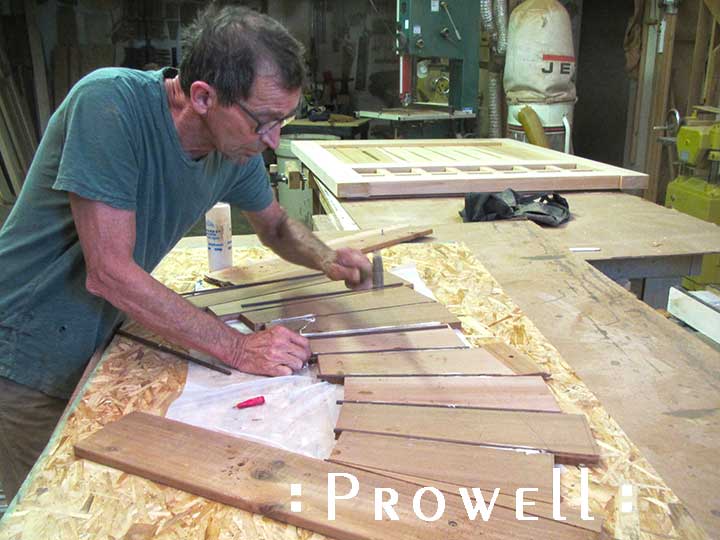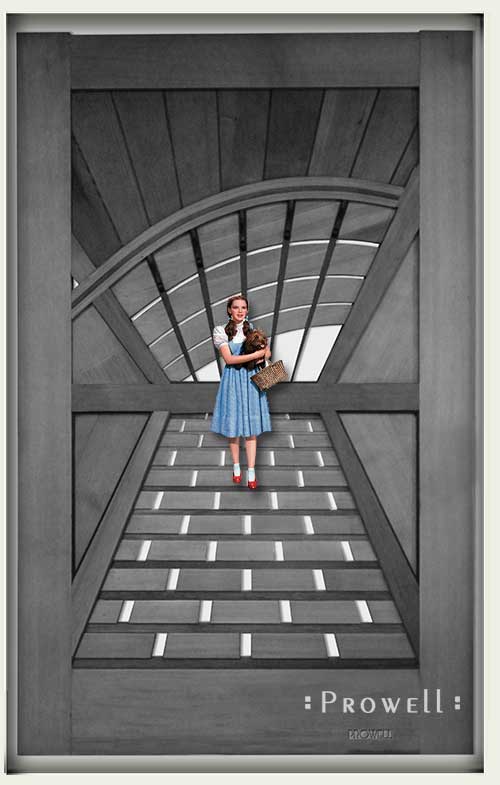Custom wood gate 211 is an excursion into the illusion of the three-dimensional, vanishing perspective wood gate. A walk down the Yellow Brick Road…with Dorothy and Toto.
What does that mean?
1) Definition: Creating the illusion of 3-D depth from a 2-D platform.
2) Definition: Considering an object or entity from a point of removal, such as how succeeding generations view an act of history with a continuum that is influenced, but distinct. e.g. as the novelist Milan Kundera suggests, the soldier who served under Stalin was tutored in obedience to the greater cause, while somewhat disturbed with the ruthless dismissal of human life. That soldier’s son, born at the time of Stalin’s death, hears his father’s stories and, upon reaching maturity, makes his own assessment regarding Stalin as a considerably less benevolent figure who exemplified the strength of cruelty. The soldier’s granddaughter, born 25 years after Stalin’s death, listens to her father’s assessment and upon reaching maturity, arrives at a perspective influenced by present-day revelations on history and firmly holds Stalin’s place in history as a rampaging cold-blooded murderer on a scale far exceeding Adolf Hitler. The graduations from the soldier to his granddaughter can syntactically be referred to as Vanishing Perspectives.
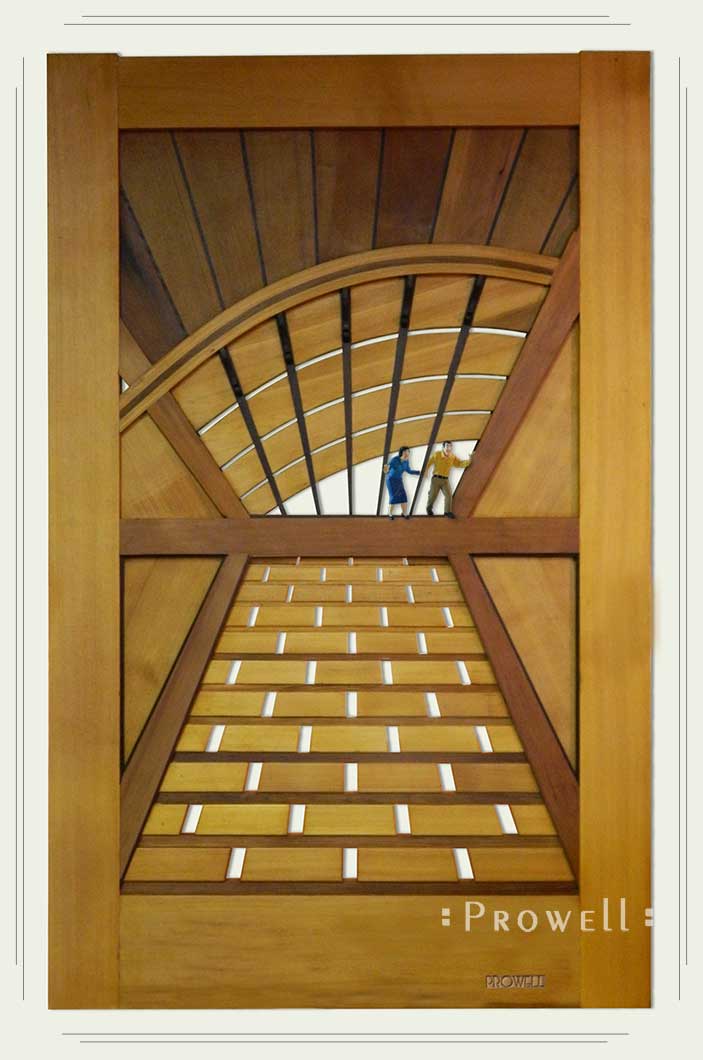
CUSTOM GARDEN GATE 211
The back, or property side of the three-dimensional entry gate 211.

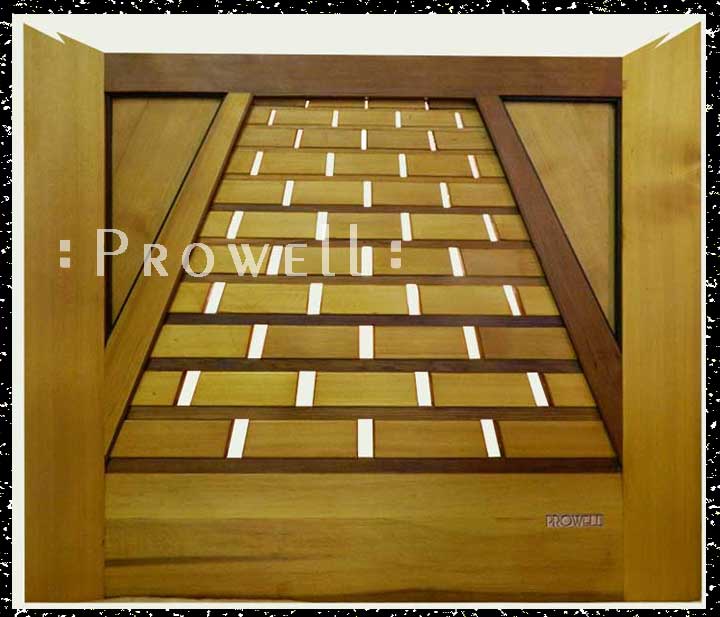
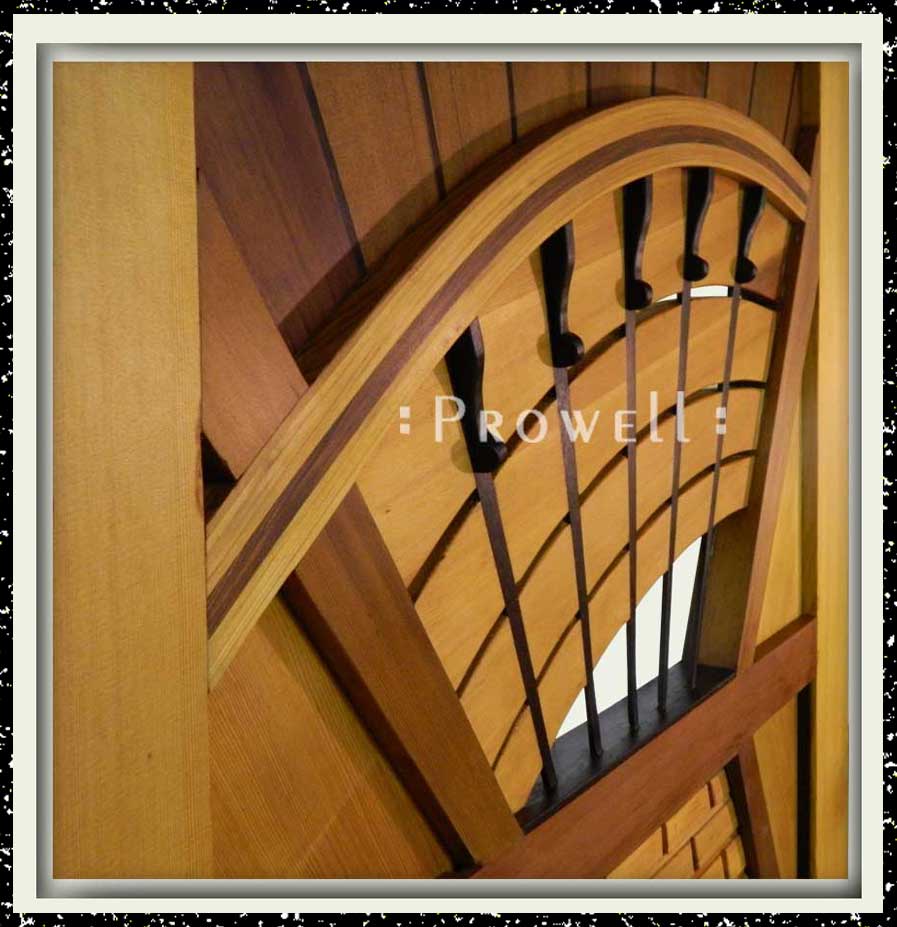
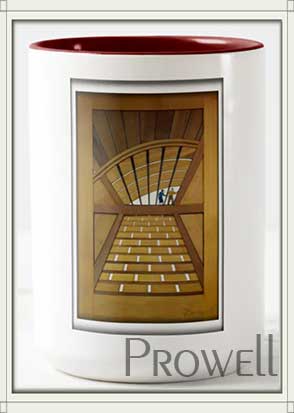
![]()
In-Progress
BUILDING GATE 211–PROGRESS
Determining the disappearing perspective on the drafting board began with the tutelage of Charles’ mother, a painter and illustrator. It was revisited in college, and over and over throughout the last 50 or so years.
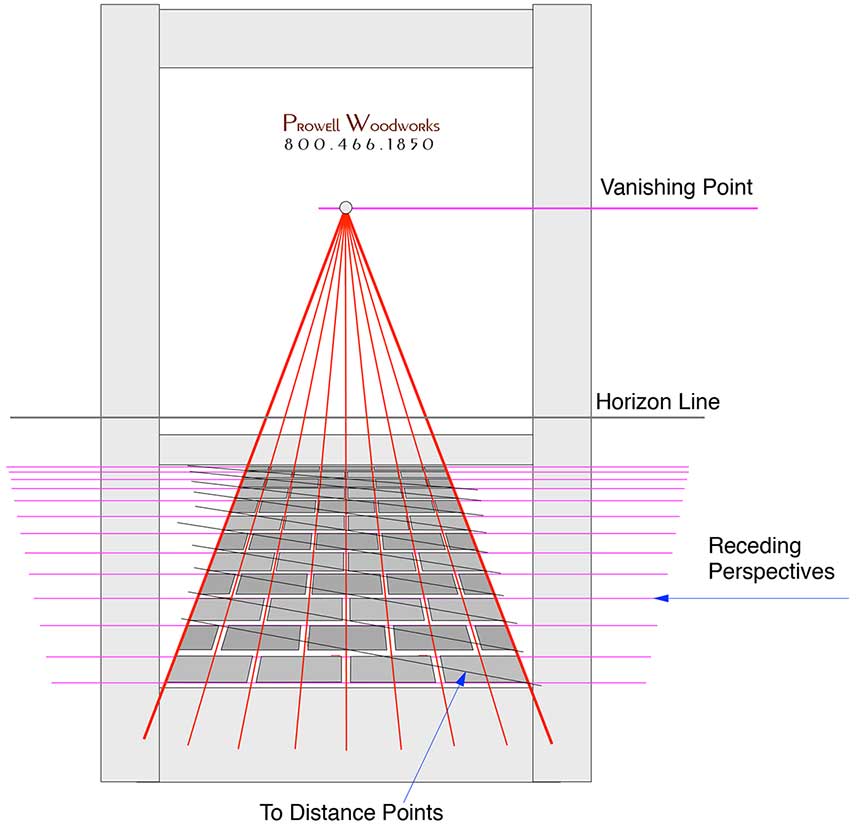
211–PROGRESS
The tangible layout of the lower perspective is not drawn from a patterned slab, but in fact a series of blocks. Every one of them is a different length, width, angle, and thickness. As well as the variable spacing between the blocks and the rows. A receding yellow brick road. So when others ask ‘How long did it take?’ they might be asking the wrong question. How long does it take to play a round of golf or read War and Peace or plant a bed of cucumbers in the garden. The act itself is outside the parameters of time.
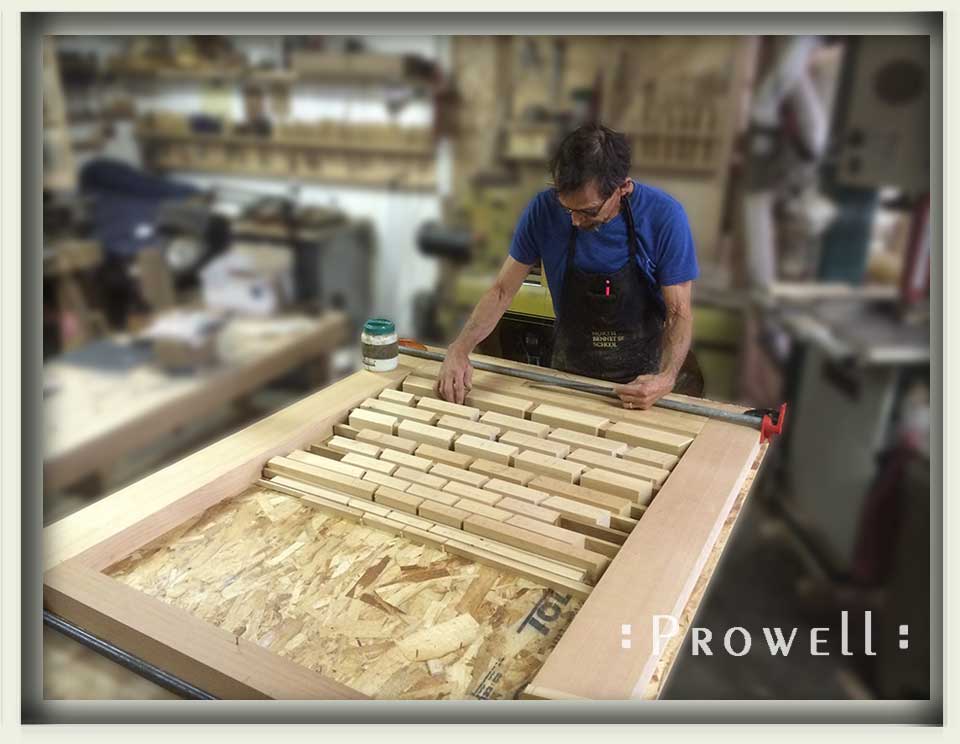
211–PROGRESS
To our competitors –if they exist–it must appear laughably inefficient. The puzzle pieces to any Trompe L’oeil must follow the geometry of multiple vanishing points.
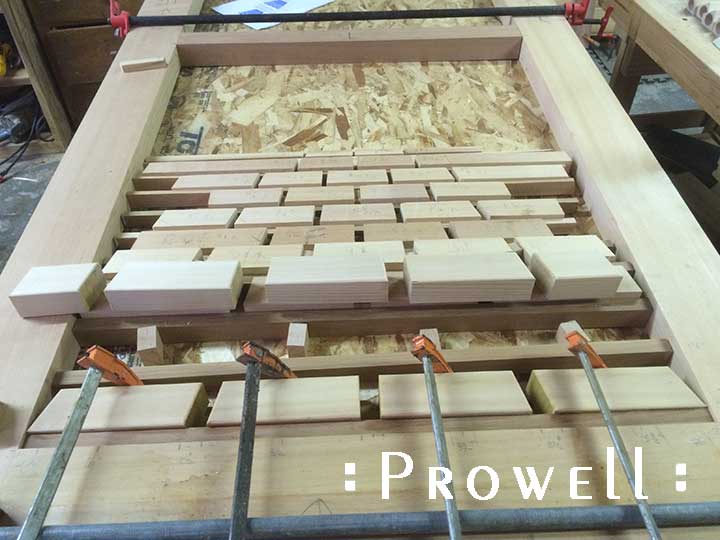
211–PROGRESS
As with any of the more complex wood gate designs, there is often only a vague image, languishing in Charles’ mind. An ephemeral end spiked with opportunities to change course at every juncture of the process. That image for the 211 was the illusion of a disappearing perspective.
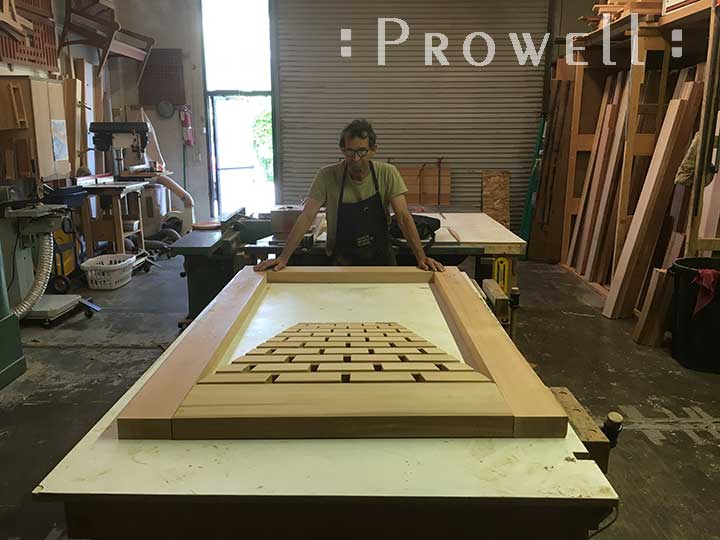
211–PROGRESS
Adding the horizontal rail, or division, to demarcate the lower yellow brick road from whatever follows within the upper section.
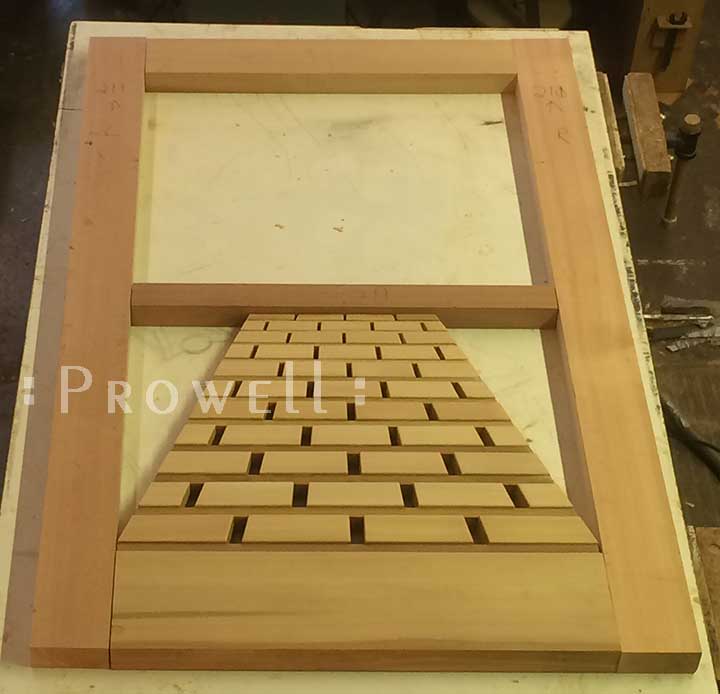
211–PROGRESS
Diagonal flanking shoulders tapered to frame the lower receding blocks such that the viewer’s eyes don’t go cattywampas.
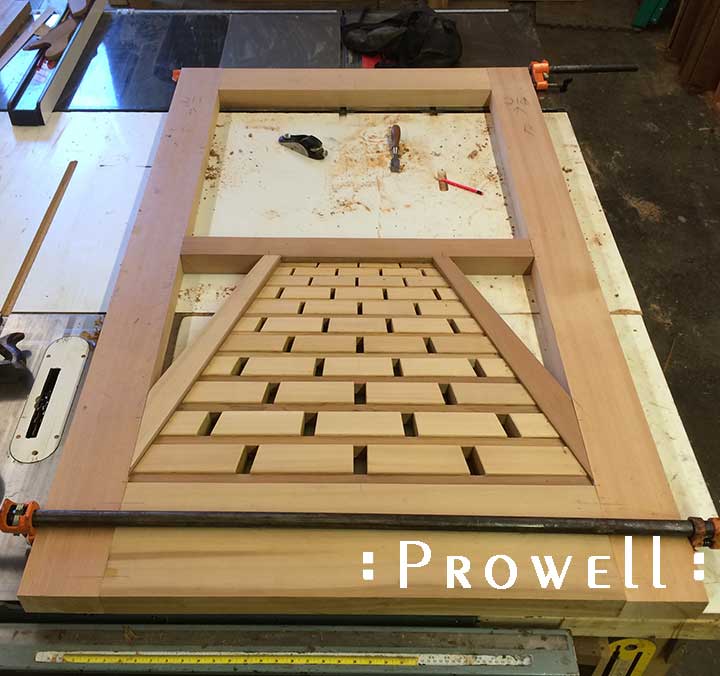
211–PROGRESS
Laminating an upper biased arc and suddenly there is a ballast. The intensity of the bricks have quickly been balanced to encompass the entirety of the wood gate. The eye can no longer dwell interminably on the disappearing perspective of the lower blocks.
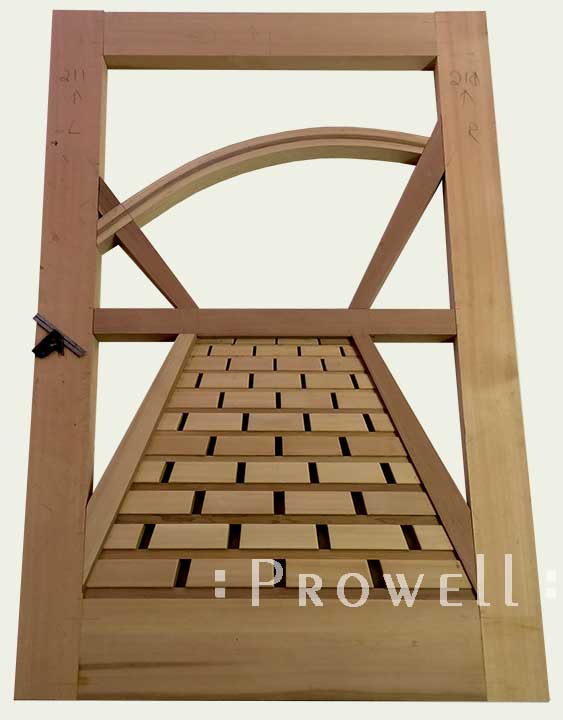
211–PROGRESS
The upper pattern begins to further establish itself from the lower. Begins to insist on the equal representation of the whole garden gate at a single glance.
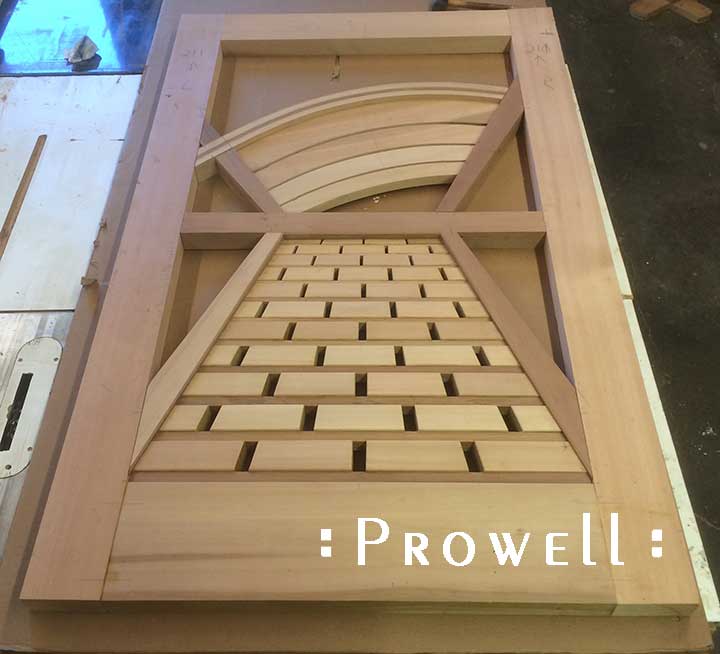
211–PROGRESS
But it asks for more. Something more in a struggle to establish an identity and if we listen, listen to the Upper, it will naturally continue to ask for more, and more, until the Upper itself becomes the headliner.
So … Inlaying a series of wenge perspective coordinates into the upper canopy of what is no longer just a wooden gate. Mounted instead to the wall of an expansive public lobby.
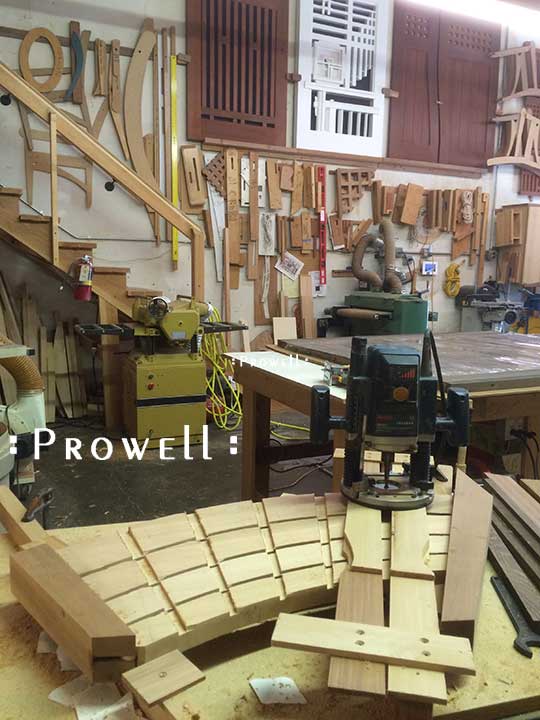
211–PROGRESS
The Upper section of our garden gate is now happy . . . or happ-ier. Drawing its share of your attention in the behavioral manner anything with molecules can understand. “Look at me.”
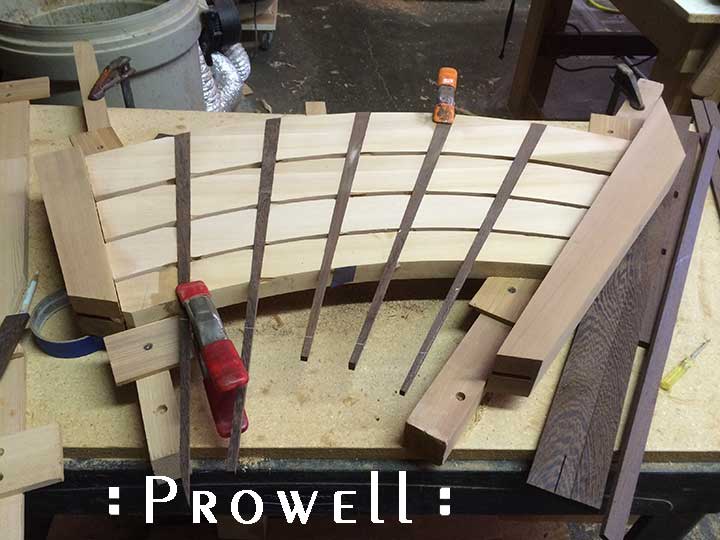
211–PROGRESS
Having succeeded in securing Charles’ focused attention, Upper goes a step further. A sweet-talking, condescending maneuver that leads this once pubescent Upper into it’s own contributing maturity toward the wooden gate as a whole. Five focal points helping to draw our balancing eye up from the yellow brick road. Insisting our viewers take notice. Once again…Look at Me.
*And by the way, there’s a slim novel written by Anita Brookner titled Look at Me. If you’re searching for a quiet, yet rewarding experience, read this book.
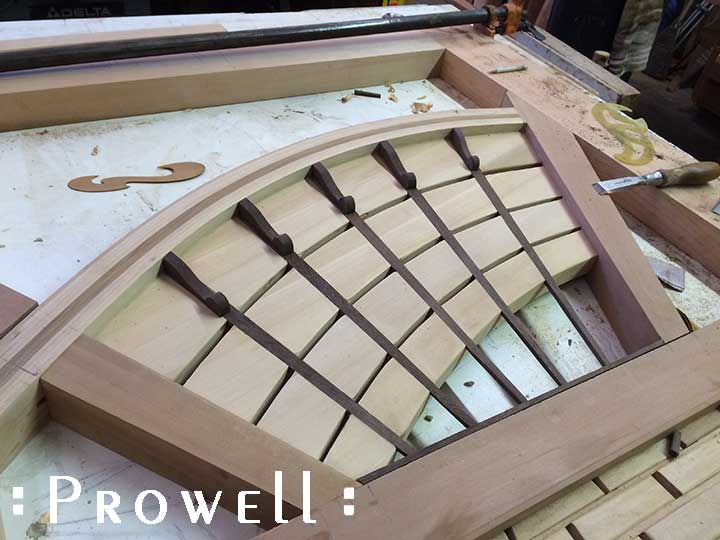
211–PROGRESS
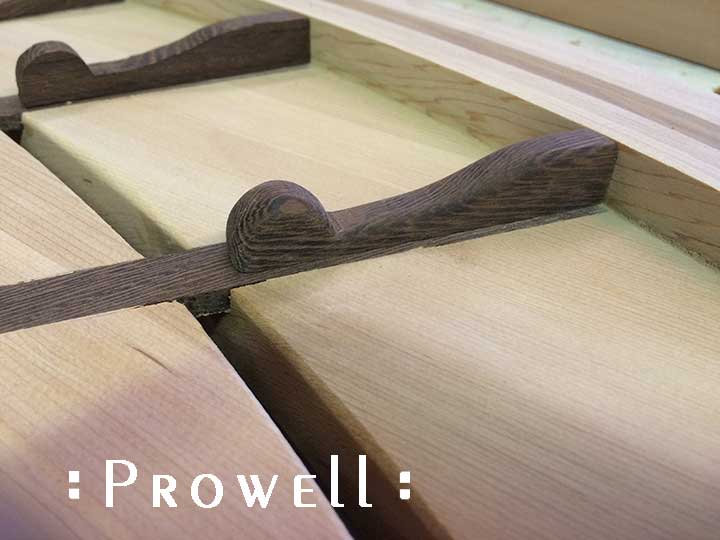
211–PROGRESS
At this juncture, the visual alliance of Upper and Lower are near equals, and any further personalities in the mix can be realized as a mistake. We have established what the common eye can digest at a glance. Any more and we’ve lost our audience; they no longer have visions of meeting the artist who is certifiably nuts.
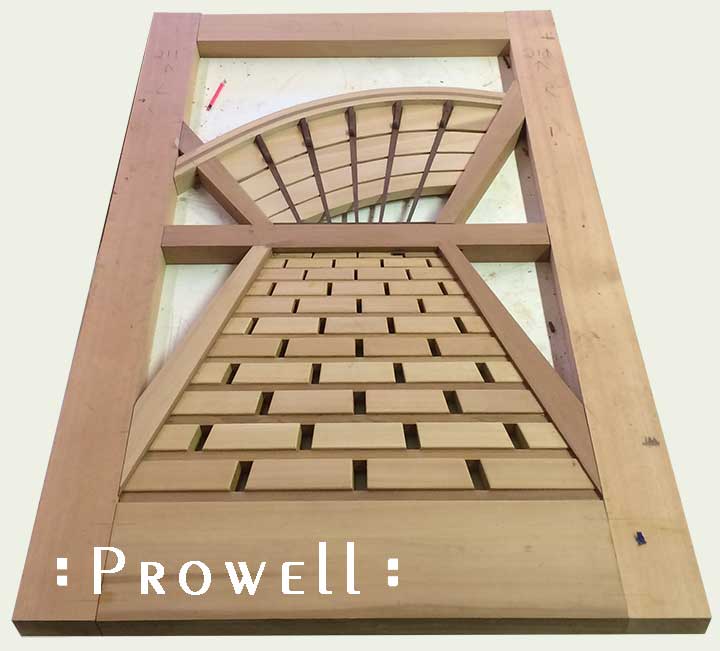
211–PROGRESS
As a mimicking feature to the Upper’s wenge spokes, the Top Panel receives a similar, yet more subtle identity. A sibling’s kinship, as each of the boards are ripped to a sunburst taper .
To consider one of the masters of vanishing perspectives, look into MC Escher by Clicking Here.
A Dutch graphic artist (B 1898. D 1972) working primarily in pencil illustrations. Drawn by the mathematic principles of perspectives, he worked in total obscurity for most of his life.
